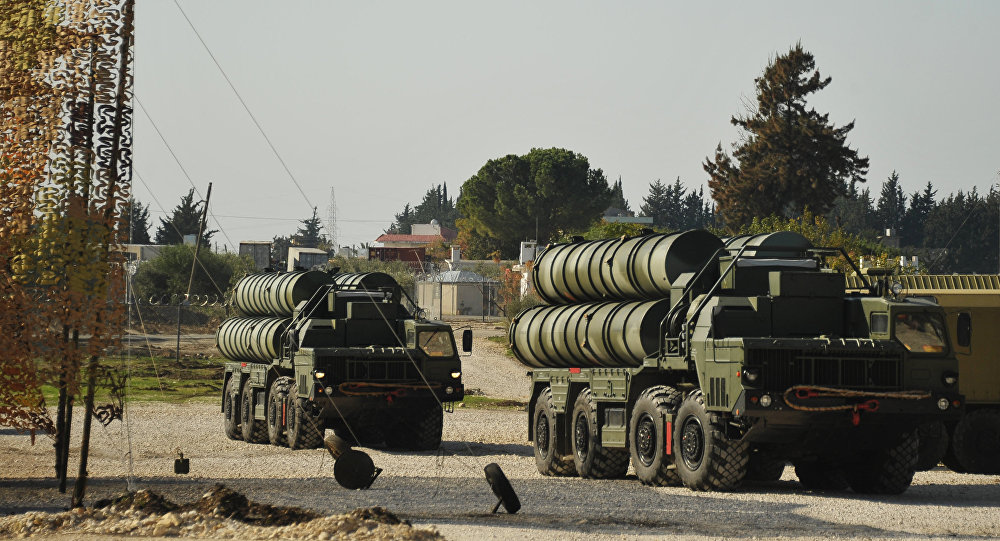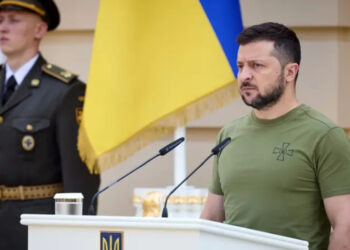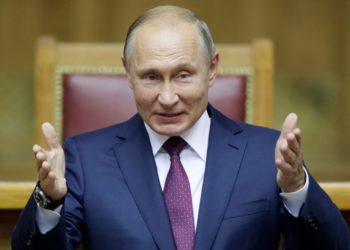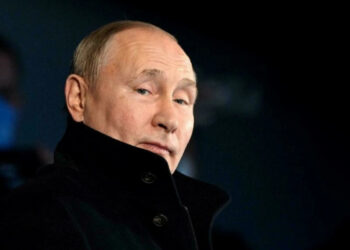Russia’s gargantuan Zapad 2017 war games that began last week with Belarus rose suspicion among some NATO members who did not embrace Moscow’s narrative about the nature and scale of the sophisticated military drill. The Cold War days riven by mutual distrust and an acute sense of the need for military preparedness are back.
But another development created an additional problem for NATO: Turkey’s purchase of the Russian S-400 air defense system, conducted despite numerous objections voiced by its allies.
“They went crazy because we made the S-400 agreement. What were we supposed to do, wait for you? We are taking and will take all our measures on the security front,” Turkish President Recep Tayyip Erdogan said in remarks in Ankara.
The deal presented a real challenge for relations between NATO and Turkey, fueling speculation on whether the agreement points to a new geopolitical and military alliance between Moscow and Ankara, or is just a defense contract signed to boost Turkey’s air defense capabilities.
Though the deal was largely negotiated throughout the summer, Mr. Erdogan announced the signing of it last Tuesday after months of wrangling with Moscow over financial terms.
The sale was negotiated at a time when Ankara found itself at odds with its NATO partners.
The Turkish government’s crackdown on political opponents at home has had reverberations beyond the country’s borders. Germany recently announced it would freeze arms sales to Ankara in response to the deterioration of freedoms and democratic mechanisms in Turkey.
“We have put on hold all big requests that Turkey sent to us, and these are really not a few,” German Foreign Minister Sigmar Gabriel said last week.
The S-400 deal also came after prosecutors in the U.S. state of New York introduced charges against the Turkish economy minister Zafer Caglayan and the chief executive of state-run Halkbank, Suleyman Aslan, over violations of U.S. sanctions against Iran. The indictment against Mr. Erdogan’s bodyguards was another point of friction that complicates the turbulent relationship.
Following Mr. Erdogan’s announcement of the final agreement with Russia, U.S. Senator Ben Cardin called on the Trump administration to impose sanctions against Ankara, saying that the deal violates congressional sanctions on Moscow introduced last month.
“Turkey’s purchase of Russian S-400s is significant in my view not so much as a self-standing event (no matter how important the fact itself may be) but rather as yet another step in Erdogan’s estrangement from NATO, the U.S. and the EU,” Nathalie Tocci, Director of the Istituto Affari Internazionali, told The Globe Post.
Ms. Tocci thinks that strategic competition and occasional cooperation are the contradictory forces that define Russia-Turkey relations.
“Turkey and Russia have always and will remain strategic competitors but notwithstanding such competition, they have always occasionally cooperated on a tactical level,” she said.
In that regard, she noted that the purchase of S-400s presents “yet another example of such tactical convergence.”
Turkey’s quest to acquire long-range air defense systems goes back to the early 2000s. The crippling financial crisis of 2001 prompted Turkish authorities to scrap all expensive military procurement plans and forced them to shelve the idea. In addition, the demand of the new Justice and Development Party (AKP) under Mr. Erdogan’s leadership for technology transfer and joint production caused delays in Turkey’s talks with international firms.
In the early 2010s, the issue resurfaced on Turkey’s agenda in the aftermath of the Arab Spring and the outbreak of war in Syria and Iraq.
In 2013, Turkey struck an air defense system deal with a Chinese company to the chagrin of NATO. The planned $3.44 billion program fell apart two years later under tremendous pressure from the U.S. However, similar warnings failed to deter Turkey from finalizing the agreement with Moscow last week.
A NATO official told The Globe Post that it is up to member countries to decide what military equipment they buy.
“What matters for NATO is that the equipment Allies acquire is able to operate together. Interoperability of our armed forces is fundamental to NATO for the conduct of our operations and missions,” the official said, noting that the alliance has not been informed of any of the details of the deal.
Stephen J. Flanagan, a senior political scientist with RAND Corporation, told The Globe Post that if the S-400 deal is consummated, it will further strain Turkey’s relations with the United States and other NATO allies.
He said Mr. Erdogan has rebuffed pleas from allies to seek an air defense system that would be interoperable with other NATO capabilities in an effort to demonstrate Turkey’s independence in choosing it arms suppliers.
“Militarily, the S-400 is unlikely to be interoperable with other NATO systems, thereby diminishing the integration of Turkey’s overall air defense system within the alliance,” Mr. Flanagan noted.
“However, allies are certain to have technical and security concerns with trying to integrate the S-400. The deal is also inconsistent with a 2016 agreement among NATO members to eschew acquisition of Russian weapons systems,” he added.
According to Mr. Flanagan, the deal, terms of which have not been made public, is driven heavily by political, trade and defense industrial considerations.
“The Russians may have promised the Turkish government certain technology sharing and co-production arrangements. It also advances Erdogan’s and Putin’s mutual goal of expanding bilateral trade,” he said.
For Mr. Flanagan, the deal is a win for Russia, but a risky gambit for Turkey.
It does not alter the fact that Russia still poses security challenges for Turkey, be it in Syria or the Black Sea, the two areas where the countries have conflicting interests that limit lasting cooperation.
“Most senior Turkish officials seem to remain wary of Russia’s military capabilities and intentions in Syria and the Black Sea region and know that membership in NATO is the country’s best security guarantee,” Mr. Flanagan said.
The missile agreement will, he noted, try the patience of the allied leaders who may further question Turkey’s long-term direction as it seeks to balance its membership in NATO with its interest in deepening ties with Russia.




















